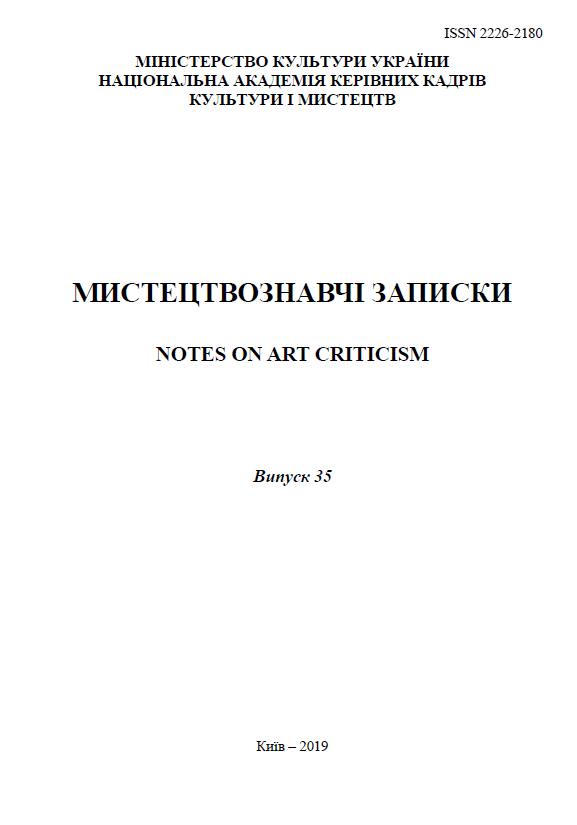ОСМОГЛАСНИК КАЛЛІСТРАТА 1769 РОКУ: АВТОРИЗАЦІЯ ГРЕКОМОВНИХ ПРИЧАСНИКІВ І ХЕРУВИМСЬКИХ ПІСЕНЬ
KALLISTRAT’S OKTOECHOS, 1769: AUTHORIZATION OF THE GREEK-LANGUAGE COMMUNION CHANTS AND CHERUBIM SONGS
Author(s): Yevgeniya IgnatenkoSubject(s): Cultural history, Music, 17th Century, 18th Century, History of Art
Published by: Національна академія керівних кадрів культури і мистецтв
Keywords: Greek Kallistrat’s Oktoechos; authorization of chants; Kiev staff notation; Middle Byzantine notation; exegesis;
Summary/Abstract: Purpose of the article. The Greek Oktoechos, created by the Kiev monk Kallistrat in Moldavia, is a unique musical manuscript, in which the Greek, Moldavian and Ukrainian-Belarusian traditions of church chanting combines. The objective of our study is to authorize the Greek-language Communion Chants and Cherubim Songs from Kallistrat’s manuscript; to collect the information about composers whose works Kiev monk written down; to present the Oktoechos in the context of the Byzantine musicology’s current problems; to outline the significance of Kallistrat’s manuscript. Methodology. The comparative method of research of the Greek-Byzantine musical manuscripts and Kallistrat’s Oktoechos is applied. Scientific novelty. For the first time in the musicology, the Greek-language Communion Chants and Cherubim Songs from Kallistrat’s Oktoechos were authorized. It turned out that the Kiev monk written down the works of the prominent Byzantine musicians of the second half of the 17th century – Protopsaltis Panagiotis Chrysafis the New and the priest Balasis, as well as famous composers of the last quarter of the 17th – the first quarter of the 18th century Joachim Salabasis and Antonios Hiereus.
Journal: Мистецтвознавчі записки
- Issue Year: 2019
- Issue No: 35
- Page Range: 267-273
- Page Count: 7
- Language: Ukrainian

